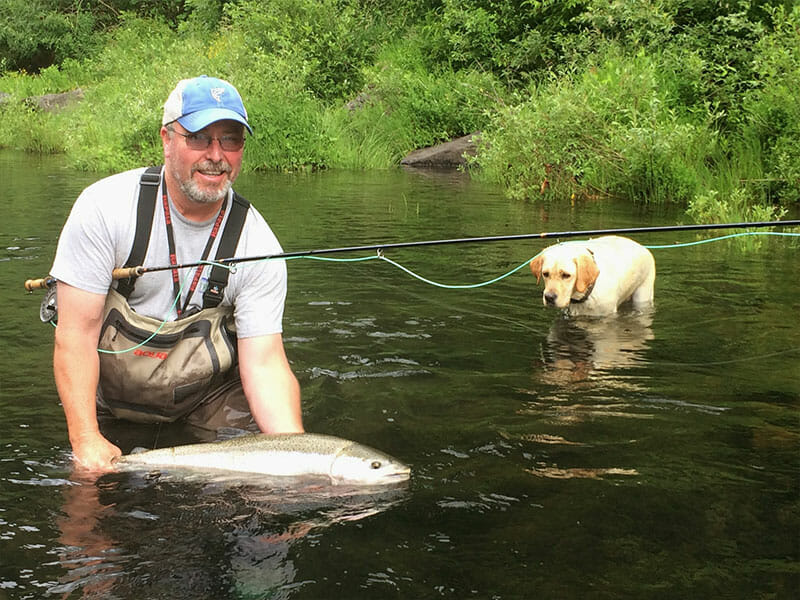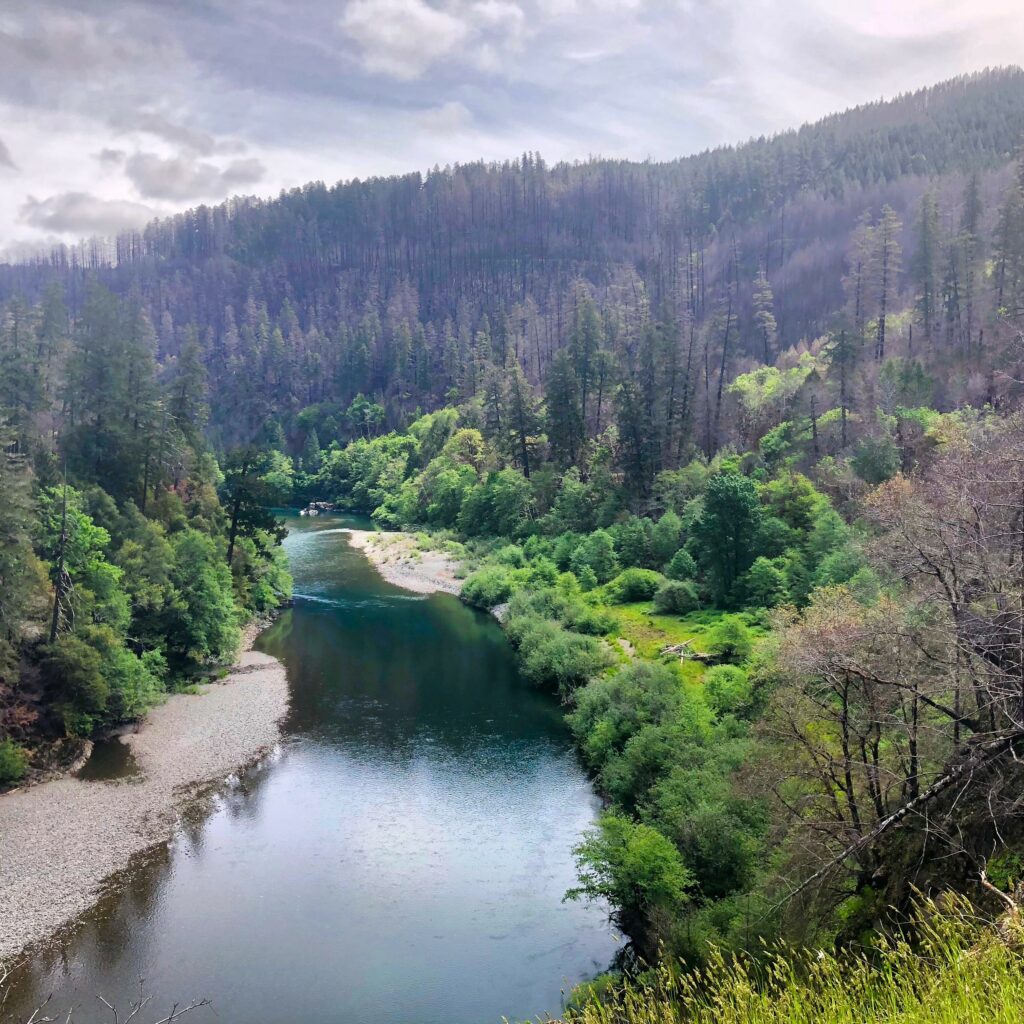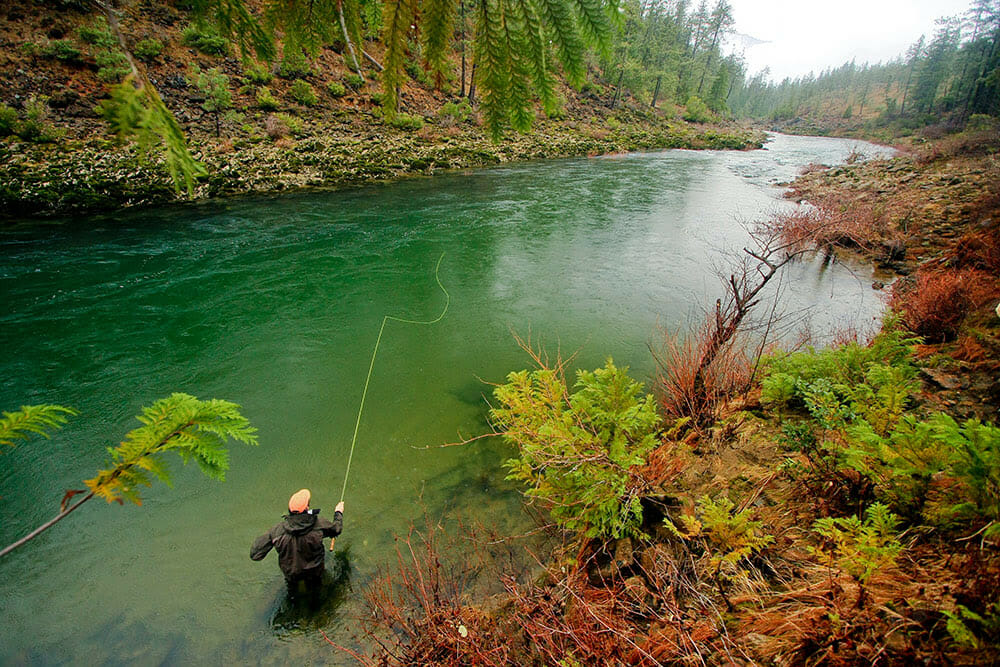On November 9, Dean Finnerty became the latest Trout Unlimited representative to testify before Congress, when he appeared before the House Subcommittee on National Parks, Forests and Public Lands in support of the Southwestern Oregon Watersheds and Salmon Protection Act.
Few are more qualified to tout the importance of southwestern Oregon streams for salmon and steelhead than Dean, who is the director of TU’s Wild Steelhead Initiative and Northwest Regional Director for TU’s Anglers Conservation Project. Before coming to TU, Dean served 26 years in law enforcement and operated a fishing and hunting guide business in Oregon for more than two decades.
The impetus for the Southwestern Oregon Watersheds and Salmon Protection Act was proposed hardrock mining in the headwaters of the Smith River, one of the most famous salmon and steelhead streams in America, and in the headwaters of other famous fishing waters like the Rogue and Chetco Rivers. This legislation would protect these waters, as well as lesser-known salmon and steelhead streams such as Hunter Creek, Rough and Ready Creek and Baldface Creek, from ill-conceived mining activities.
U.S. Sens. Ron Wyden (D-OR) and Jeff Merkley (D-OR) and U.S. Reps. Peter DeFazio (D-OR), Earl Blumenauer (D-OR), and Jared Huffman (D-CA) first introduced this legislation in February 2015.

Finnerty testified, “Over my eight years with TU, we’ve made some progress in the effort to better protect our few remaining salmon and steelhead strongholds. But wild salmon and steelhead stocks are [still] in precipitous decline in almost all of the Western watersheds to which they are native. We are in a desperate race against the warming climate and other pressures. That’s why the Southwestern Oregon Watersheds and Salmon Protection Act is so important, and timely.”
Salmon and steelhead are iconic sportfishes of the Pacific Northwest and the foundation of indigenous cultures and commercial and recreational fishing industries that have supported rural and coastal communities in this region for generations.
The importance of southwestern Oregon as a salmon and steelhead stronghold is widely known and was a major factor in the Department of the Interior’s proposal in 2015 to withdraw some 101,000 acres of public lands from mineral extraction for twenty years, subject to valid existing rights.
More than 45,000 people commented on this proposal, 99 percent of whom supported the mineral withdrawal. Eventually, the Assistant Secretary for Lands and Minerals authorized the Southwestern Oregon Mineral Withdrawal, which took effect on December 30, 2016.
Bipartisan support for this withdrawal included endorsements from cities, counties and water districts, tribes, businesses, state agencies and elected officials in both Oregon and California, plus local, regional and national conservation and sportsmen groups.
However, the 20-year withdrawal is only a temporary safeguard for the amazing salmon and steelhead waters of this region. Now it’s time, Finnerty testified, for Congress to provide permanent protection for these irreplaceable resources and bolster local economies and communities dependent on fishing and outdoor recreation.
Finnerty noted that fishing generates more than $25 million in economic activity each year in southwestern Oregon, and sport fishing delivers $2.5 billion annually to the state’s economy.
Hotter and drier conditions associated with climate change have so severely degraded Oregon’s streams that this year, for the first time in history, the legendary fisheries of the North Umpqua and Deschutes rivers were completely closed to angling for species such as summer steelhead. Finnerty said, “We simply must do more to safeguard our last best coldwater habitats with robust populations and healthy ecology.”

While a BLM analysis concluded that mineral potential in the Smith River headwaters and neighboring streams was low, mining interests continue to explore options for extraction at a scale that would be profitable.
TU is not opposed to mining, including on public lands. However, in certain areas industrial mining is incompatible with other priorities and values, including conservation of wild salmon and steelhead stocks and protection of drinking water sources for downstream communities.
The lands and waters that would be safeguarded by the Southwestern Oregon Watersheds and Salmon Protection Act are among these special areas. At the same time, the legislation allows for a range of multiple uses to continue and would not restrict management activities such as timber harvest, hazardous fuels reduction or motorized use.
Finnerty concluded his testimony by thanking Congressmen DeFazio, Blumenauer and Huffman and Senators Wyden and Merkley for their leadership in conserving salmon and steelhead strongholds.
“This legislation would sustain the rugged outdoor heritage of southwest Oregon and northwest California, and the dependence of communities and cultures in this region on fishing, hunting and outdoor recreation,” Finnerty said. “Its passage should be a priority in this Congress.”
Anglers can help move the Southwestern Oregon Watersheds and Salmon Protection Act through Congress — stay tuned for TU action alerts and other ways to support this important bill. In the meantime, go here for more information on this legislation, and why TU strongly supports it.



